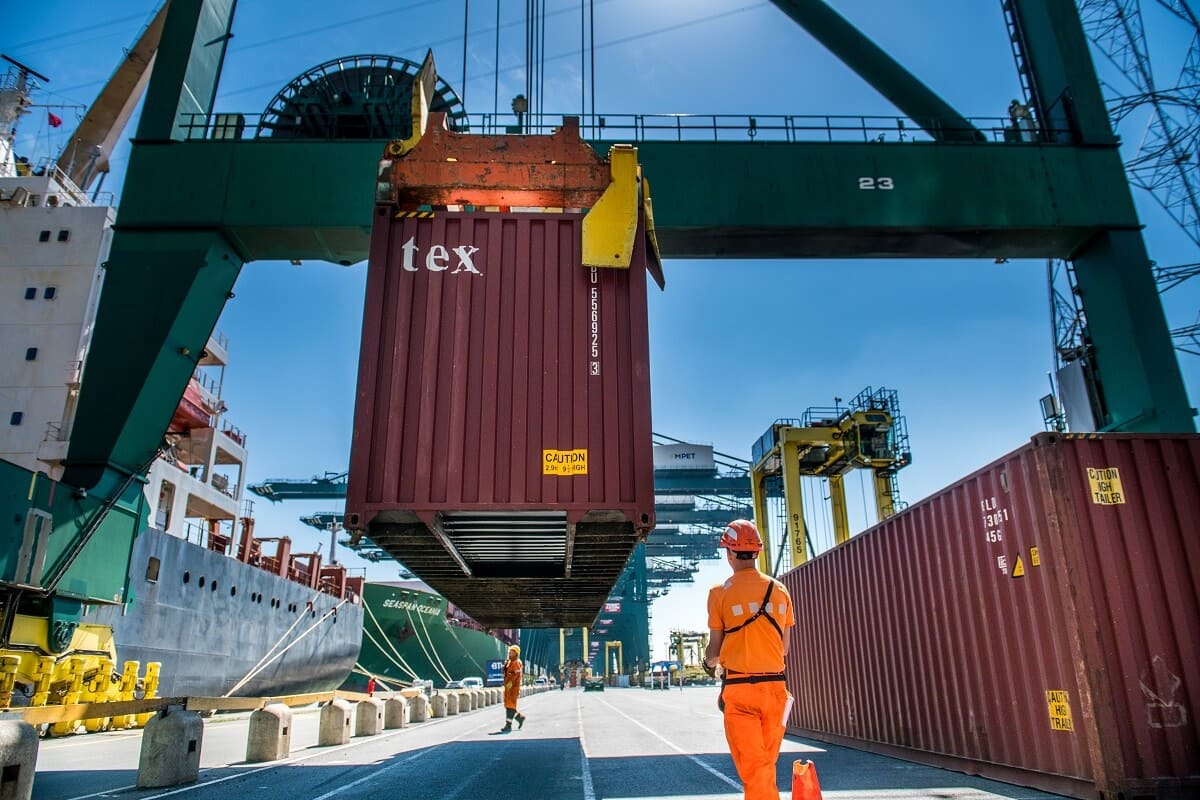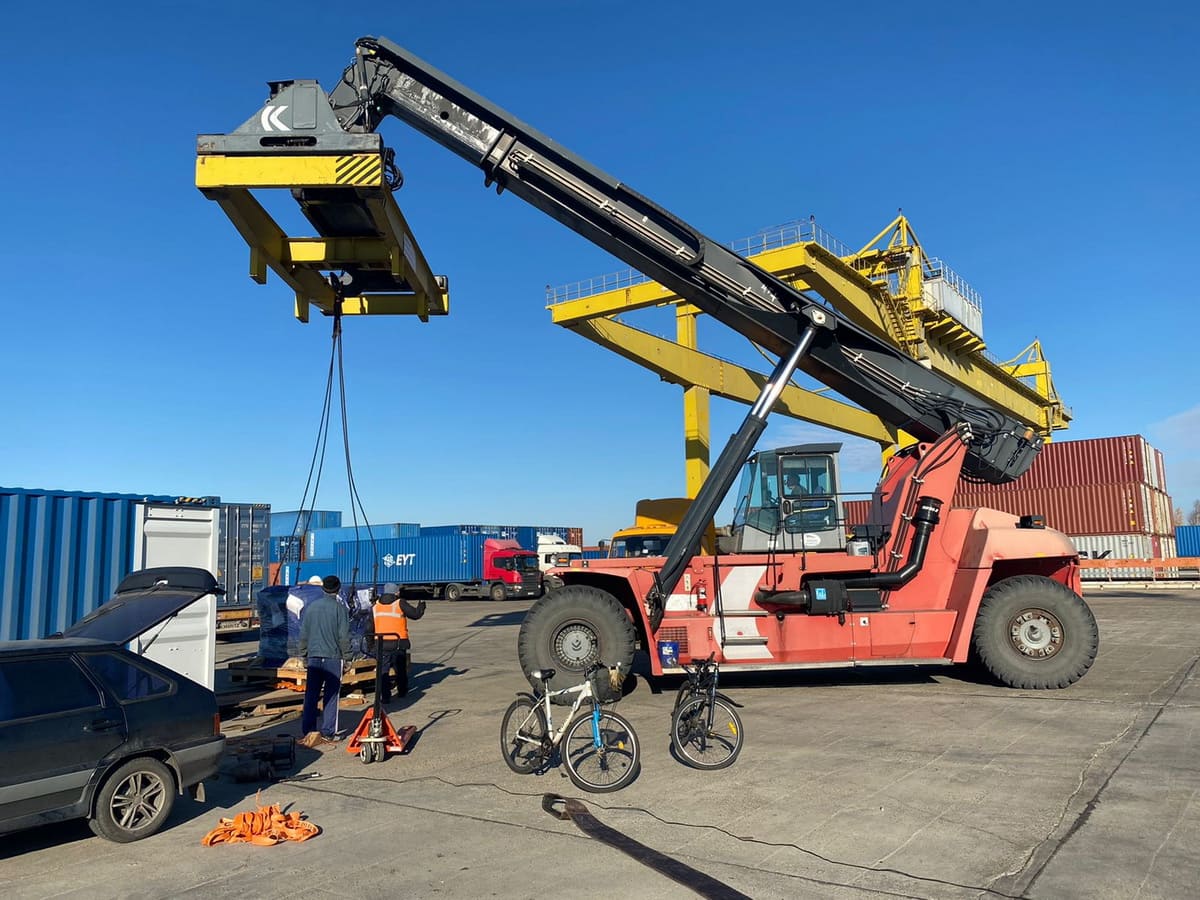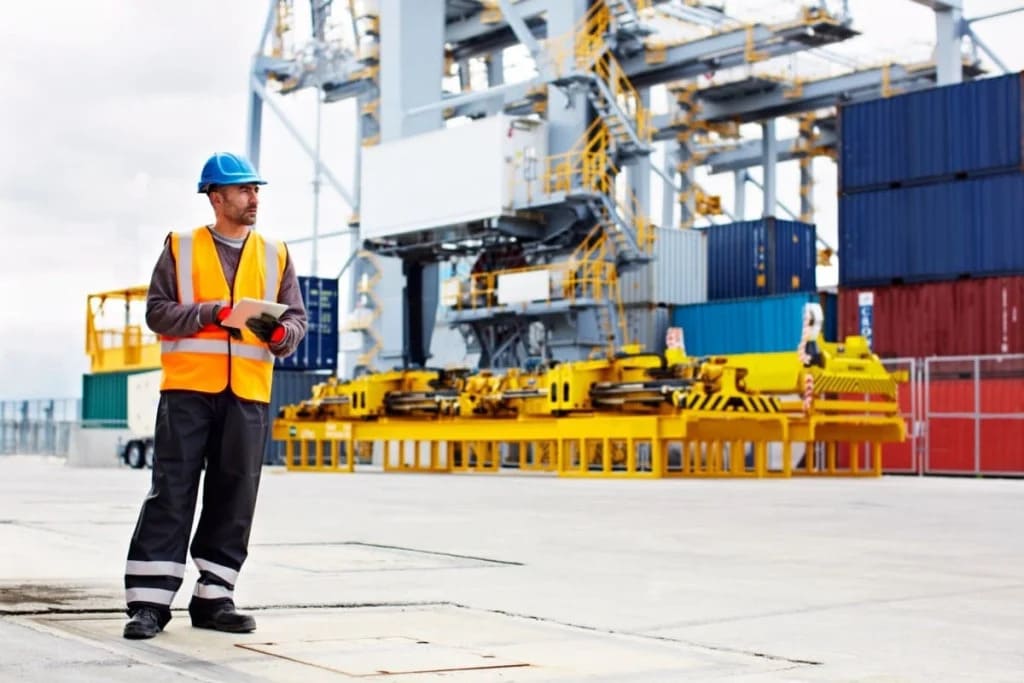
Article content:
Sea transportation of goods involves a complex of stages: from the delivery of the goods to the port to its unloading and further delivery after arrival. The key procedures in this process are regrinding and forwarding of cargo at the port. In this article, we will consider their significance and features in the framework of maritime logistics.
Transshipment is the operation of transshipment of cargo from one type of vehicle to another, often with an intermediate placement in a warehouse for storage. For example, transshipment from railway wagons or trucks to sea containers or vice versa.

Special equipment is used for grinding: cranes, loaders, conveyors, etc
Key benefits:
Transshipment is an effective logistics tool that helps optimize transportation, reduce costs, and improve flexibility in managing cargo flows.
How to guarantee the efficiency and reliability of transshipment in the port? How to ensure that all port procedures will go through without delays? Forwarding services at the port help with this.
The process involves several stages and varies depending on the type of cargo, available equipment, and routes. Let’s consider the key aspects of transshipment when planning sea freight delivery from China:
How to Ensure Effective and Reliable Transshipment?
To ensure that all procedures are completed without delays and that warehouses in China dispatch goods on time, port forwarding services are essential.
Port freight forwarding is a set of services to ensure efficient handling, movement and delivery of cargo through the port. Forwarding is carried out by the forwarder at the customer's expense and on his behalf.
The main components of transport and forwarding services in the port:
Each stage of forwarding is aimed at optimizing the passage of cargo flows through ports.

The port forwarder always acts in the interests of the clients and ensures fast passage of cargo through the port
Delivery efficiency. Forwarding guarantees the continuous movement of goods from the seller to the buyer. Thanks to a carefully developed route and action plan, the cargo goes through all stages of its stay in the port as efficiently as possible.
Cargo security. The freight forwarder controls the selection of the appropriate terminal, compliance with storage conditions and carrying out all cargo operations. This guarantees the integrity and safety of the cargo.
Efficiency of transportation. Due to the constant monitoring of the cargo, the freight forwarder quickly resolves disputed issues during customs control, processing port documents or making payment and other fees.
It’s simple: a freight forwarder coordinates rehandling when cargo arrives by sea and is to be transported further by another mode of transport. They plan and oversee the process, ensuring efficient transshipment.
Experts in rehandling and freight forwarding have experience and understand all the nuances of loading and unloading operations, customs procedures, and document processing.
They have established relationships with terminals, carriers, and customs authorities, which helps avoid delays, mistakes, and additional costs. Professionals ensure cargo safety and timely loading onto the next mode of transport. That’s why your port freight forwarder is the key to on-time delivery.
First, it’s impossible. Ports are critical infrastructure facilities with strict access controls for security reasons. Special permits or passes are required, and they are issued to representatives of transport and logistics companies or other accredited individuals. If you don’t have the proper accreditation, you won’t be able to legally carry out freight forwarding at the port.
Second, freight forwarders are professionals with specialized logistics knowledge — from customs clearance to document flow. They interact with various port services (customs, border control, port operators, carriers) and handle all necessary documentation. A private individual cannot legally represent the interests of the cargo owner.
Third, it’s simply impractical. You’d need to hire an in-house freight forwarder or spend resources and time training a staff member. That’s why it's best to delegate these services to professionals.
Container forwarding in ports requires deep knowledge of port logistics, infrastructure, service operations, legal specifics, and transportation management. Ports serve thousands of clients daily, and DiFFreight forwarders ensure your cargo undergoes transshipment efficiently and reaches its destination.
The specialists at DiFFreight have the necessary expertise to provide high-quality international logistics services. We offer not only warehouse services but also fast delivery to the EU, China, the USA, and back. Schedule a consultation to learn more about transshipment for your cargo type and route!